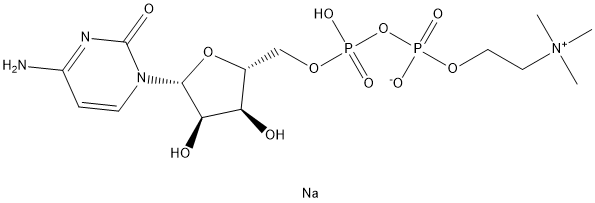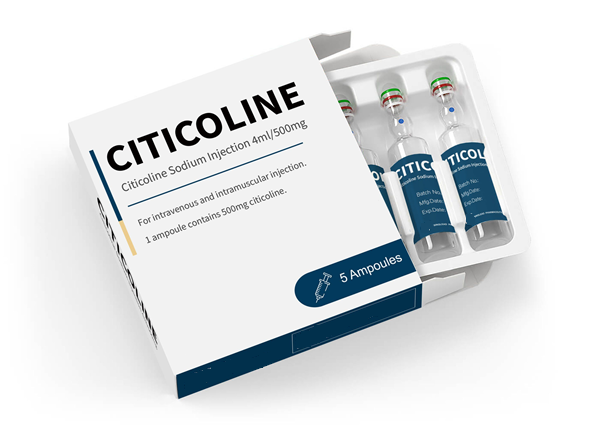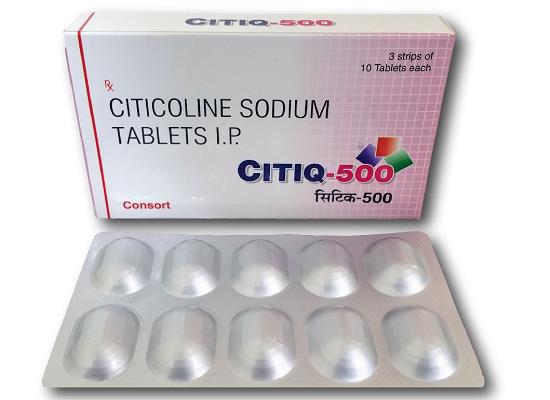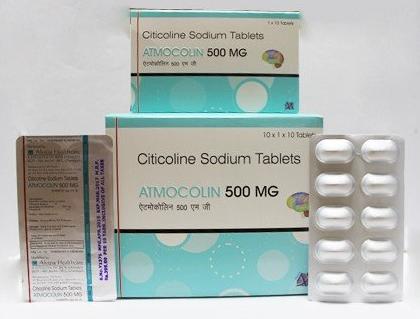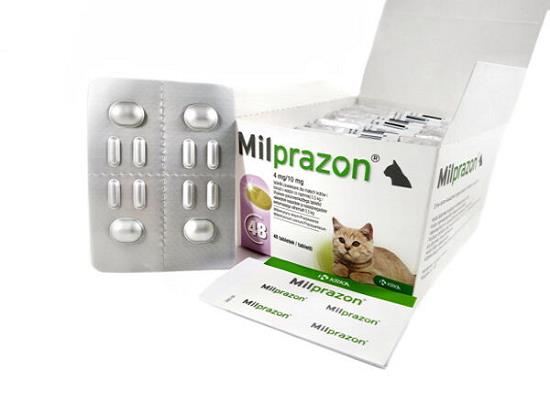Citicoline sodium: physiological effects and clinical applications
General Description
Citicoline sodium is a naturally occurring compound that has potential cognitive-enhancing and neuroprotective properties. It acts as a precursor for cytidine and choline, which are essential components for brain function. By increasing the availability of these components, citicoline sodium enhances neuronal membrane repair, improves cerebral blood flow, increases energy metabolism in the brain, and modulates neurotransmitter systems like dopamine, norepinephrine, and serotonin. This contributes to its ability to support brain health, enhance cognitive function, and potentially protect against age-related cognitive decline. Citicoline sodium has shown promising clinical applications in treating acute ischemic stroke and Alzheimer's disease. In acute ischemic stroke, it has been shown to improve functional outcomes and increase chances of complete recovery when administered within the first 24 hours of symptom onset. In Alzheimer's disease, it has demonstrated potential in improving memory, attention, and overall cognitive performance, as well as protecting neurons from oxidative stress and reducing inflammation.
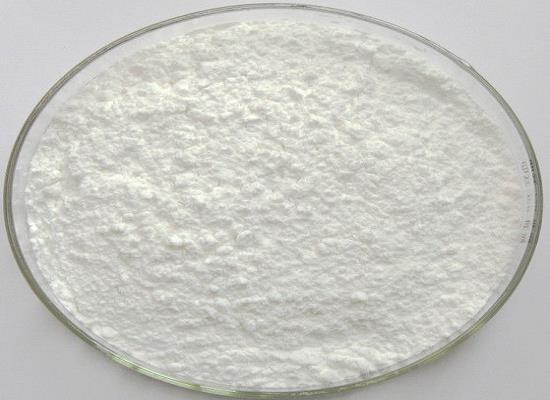
Figure 1. Citicoline sodium
Physiological effects
Citicoline sodium, also known as CDP-choline, is a naturally occurring compound that has potential cognitive-enhancing and neuroprotective properties. It acts as a precursor for cytidine and choline, which are essential components for brain function. Cytidine supports the synthesis of brain phospholipids, while choline supports the synthesis of acetylcholine, a neurotransmitter crucial for memory and cognitive processes. By increasing the availability of these components, citicoline sodium enhances neuronal membrane repair, improves cerebral blood flow, increases energy metabolism in the brain, and modulates neurotransmitter systems like dopamine, norepinephrine, and serotonin. These mechanisms contribute to its ability to support brain health, enhance cognitive function, and potentially protect against age-related cognitive decline. However, further research is still needed to fully understand its physiological actions. Overall, citicoline sodium is a popular choice for individuals seeking cognitive enhancement or neuroprotection. 1
Clinical applications
Acute ischemic stroke
Citicoline sodium, a neuroprotective agent, has shown promising clinical applications in treating acute ischemic stroke. Numerous studies have demonstrated its efficacy and safety profile. Citicoline sodium exerts its therapeutic effects through multiple mechanisms. Firstly, it enhances phospholipid synthesis, promoting the repair and regeneration of damaged neuronal membranes. This aids in preserving the integrity of brain tissue and preventing further damage. Secondly, it increases dopamine receptor density, leading to improved neurotransmission and enhanced cognitive function. Additionally, citicoline sodium attenuates pro-inflammatory responses and inhibits oxidative stress, reducing the extent of ischemic injury. Clinical trials have provided evidence supporting the use of citicoline sodium in acute ischemic stroke. It has been shown to improve functional outcomes, including reduced disability and improved neurological deficit scores. Furthermore, its administration within the first 24 hours of symptom onset has been associated with better prognosis and increased chances of complete recovery. Overall, citicoline sodium exhibits potential as an effective treatment option for acute ischemic stroke. 2
Alzheimer's disease
Citicoline sodium, a compound used in the treatment of Alzheimer's disease (AD), has shown promising clinical applications. AD is a progressive neurodegenerative disorder characterized by memory loss and cognitive decline. Citicoline sodium acts as a precursor to phospholipids, which are essential components of neuronal membranes, and enhances their synthesis. This promotes neuronal repair and improves cognitive function. Studies have demonstrated the potential of Citicoline sodium in improving memory, attention, and overall cognitive performance in AD patients. It has been shown to protect neurons from oxidative stress and reduce inflammation, both of which contribute to AD progression. Additionally, Citicoline sodium may enhance the brain's energy metabolism and increase neurotransmitter availability. Furthermore, Citicoline sodium exhibits good tolerability and safety profiles, making it a suitable therapeutic option for long-term use. It can be administered orally or via injections, providing flexibility in treatment modalities. Overall, Citicoline sodium holds promise as an effective adjunctive therapy for AD, offering potential benefits in improving cognitive function and slowing disease progression. 3
Reference
1. Adibhatla RM, Hatcher JF. Cytidine 5'-diphosphocholine (CDP-choline) in stroke and other CNS disorders. Neurochem Res, 2005, 30(1):15-23.
2. Premi E, Cantoni V, Benussi A, et al. Citicoline Treatment in Acute Ischemic Stroke: A Randomized, Single-Blind TMS Study. Front Neurol, 2022, 13:915362.
3. Nikolov R. Alzheimer's disease therapy - an update. Drug News Perspect, 1998, 11(4):248-255.
You may like
Related articles And Qustion
See also
Lastest Price from Citicoline sodium manufacturers
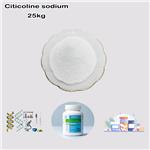
US $0.00-0.00/KG2025-11-03
- CAS:
- 33818-15-4
- Min. Order:
- 1KG
- Purity:
- 98.0%
- Supply Ability:
- 1000kg/month

US $0.00-0.00/kg2025-08-19
- CAS:
- 33818-15-4
- Min. Order:
- 1kg
- Purity:
- ≥99%(Excellent grade)
- Supply Ability:
- 2tons
